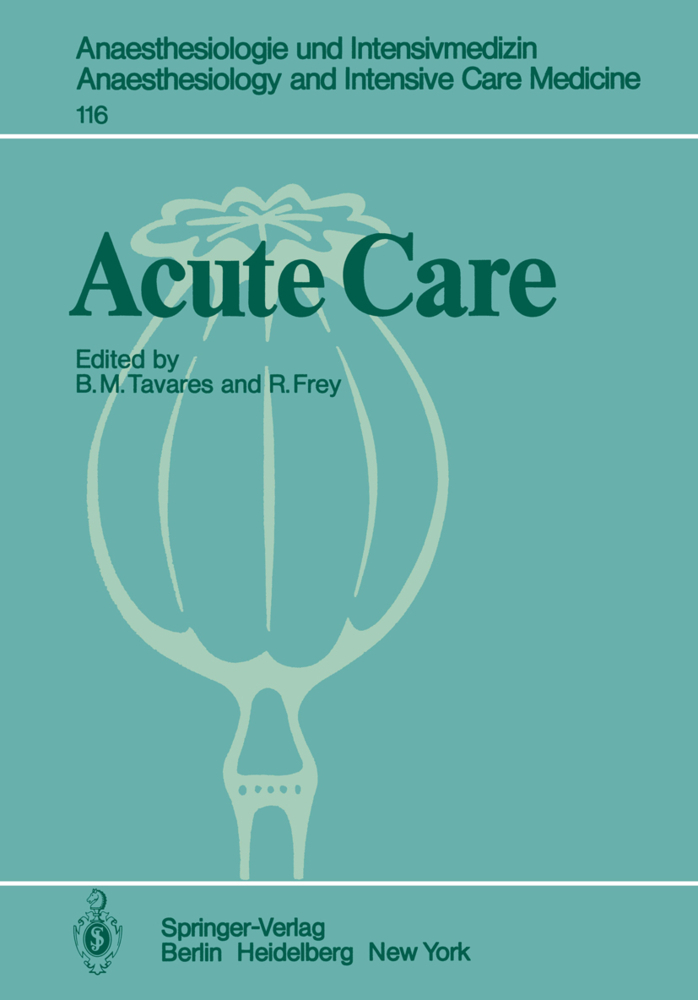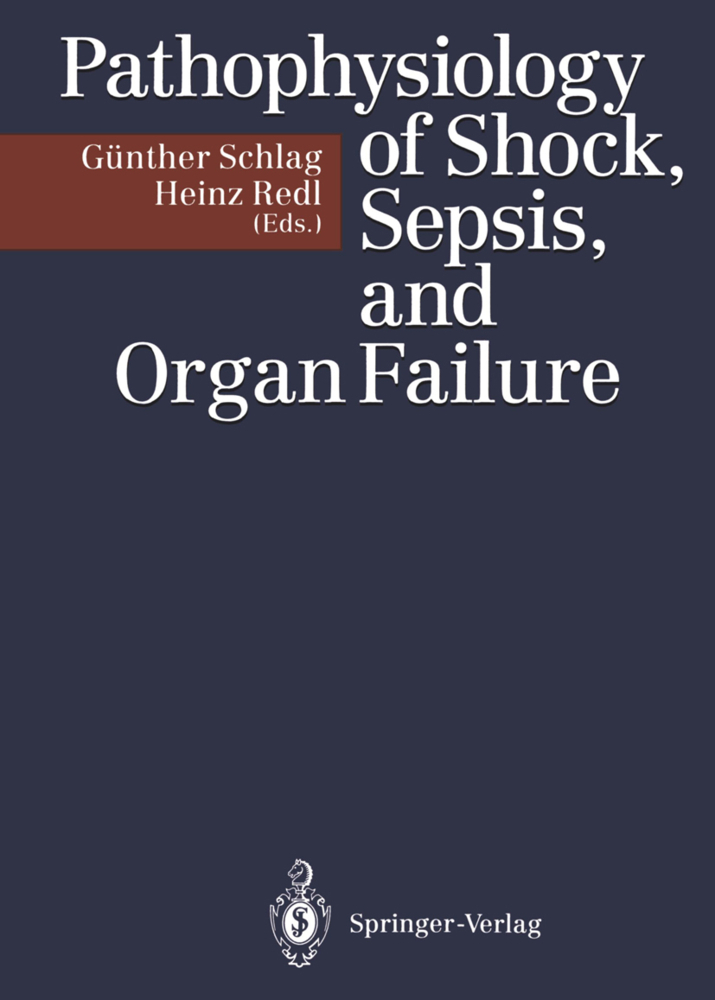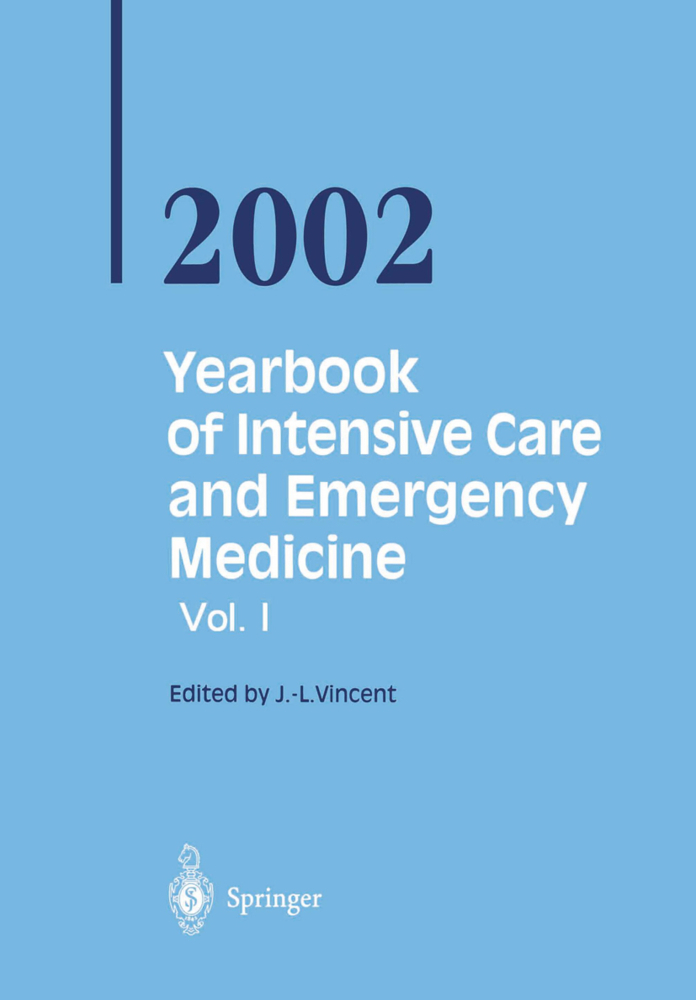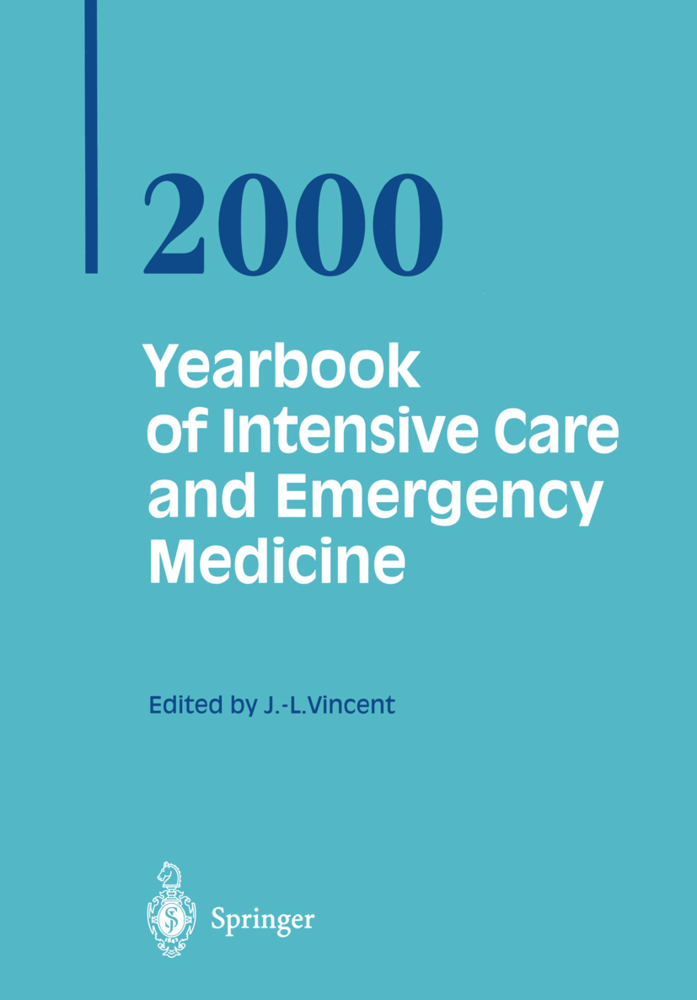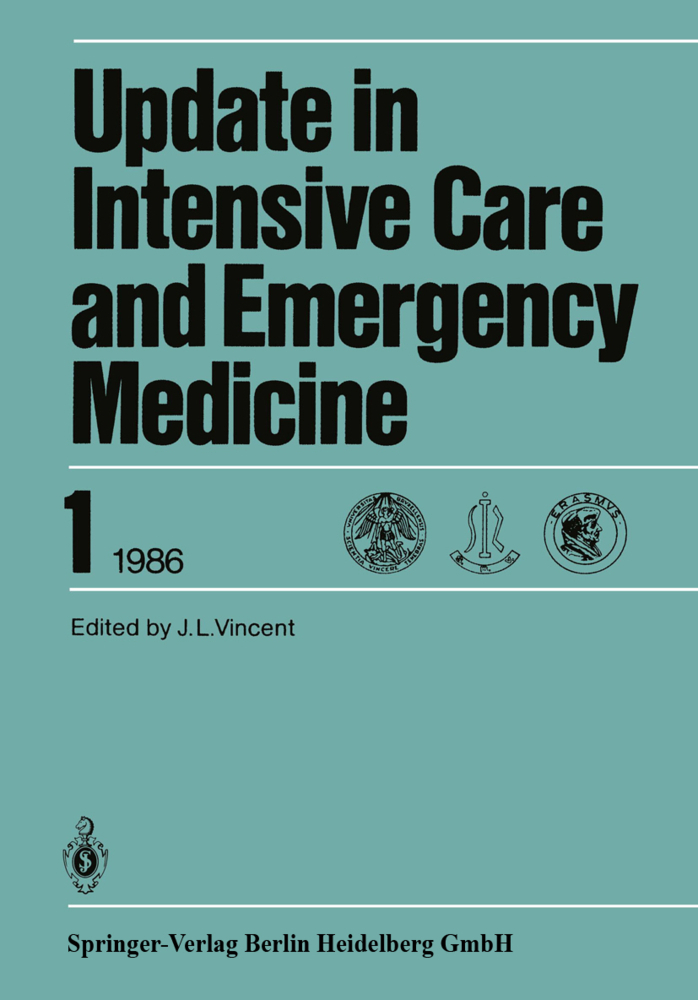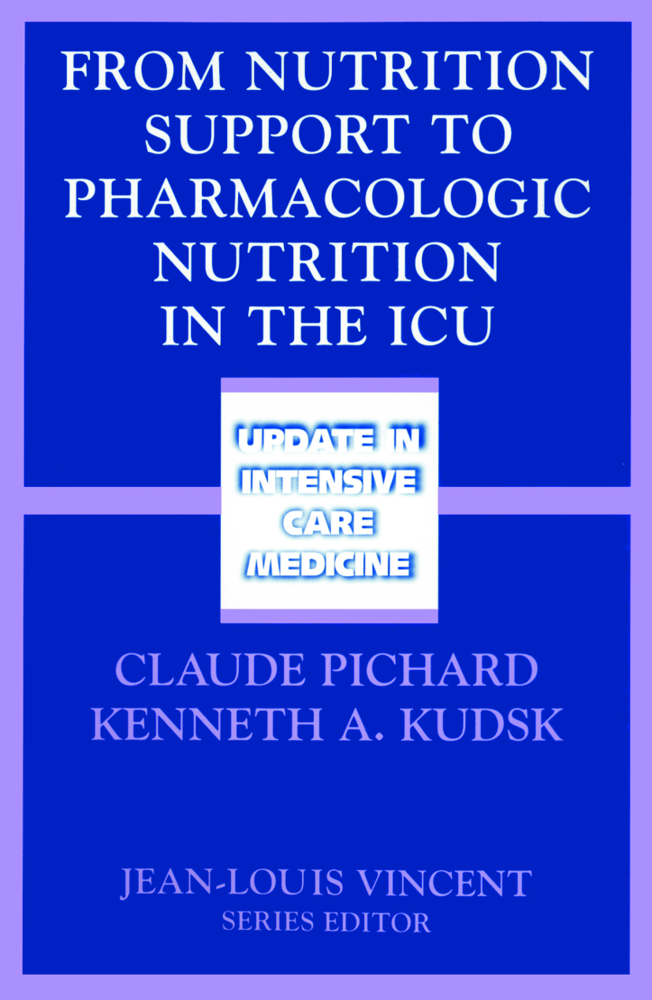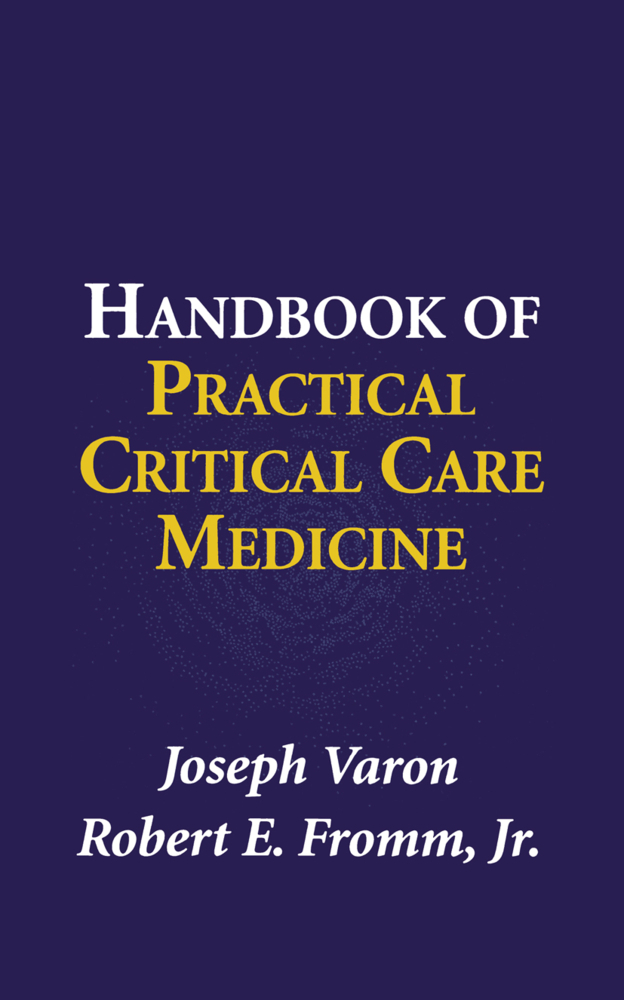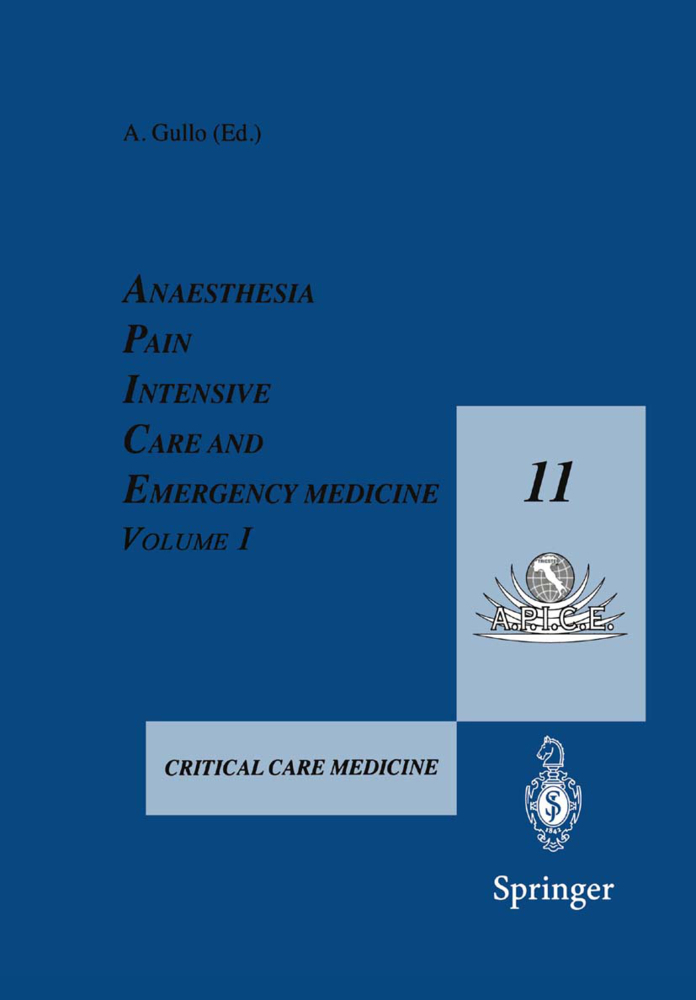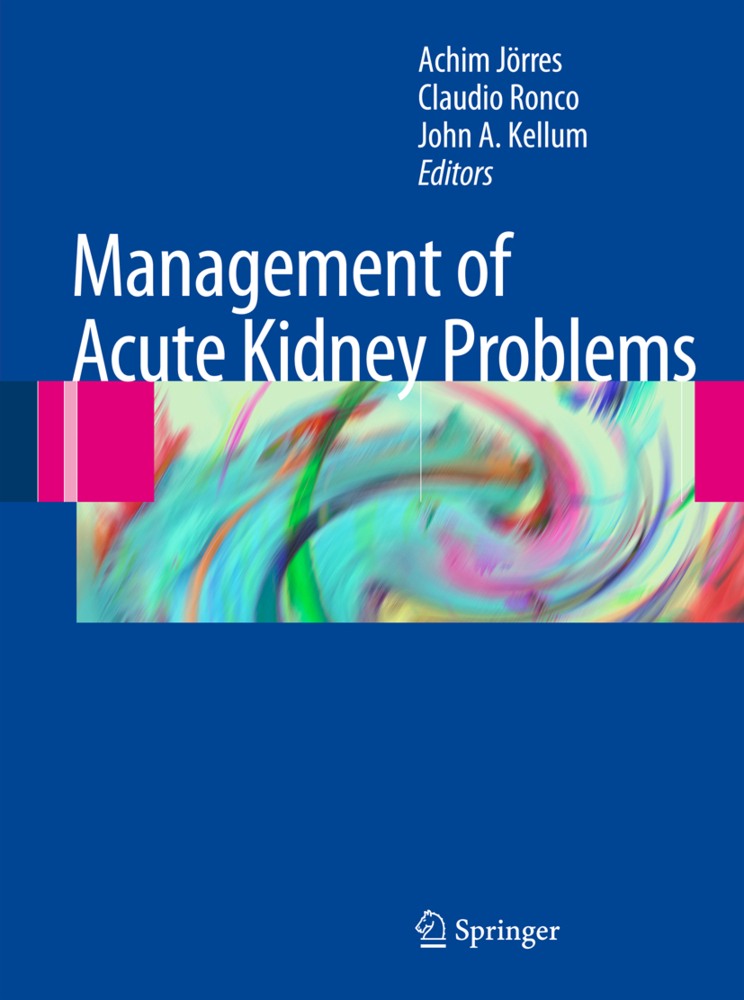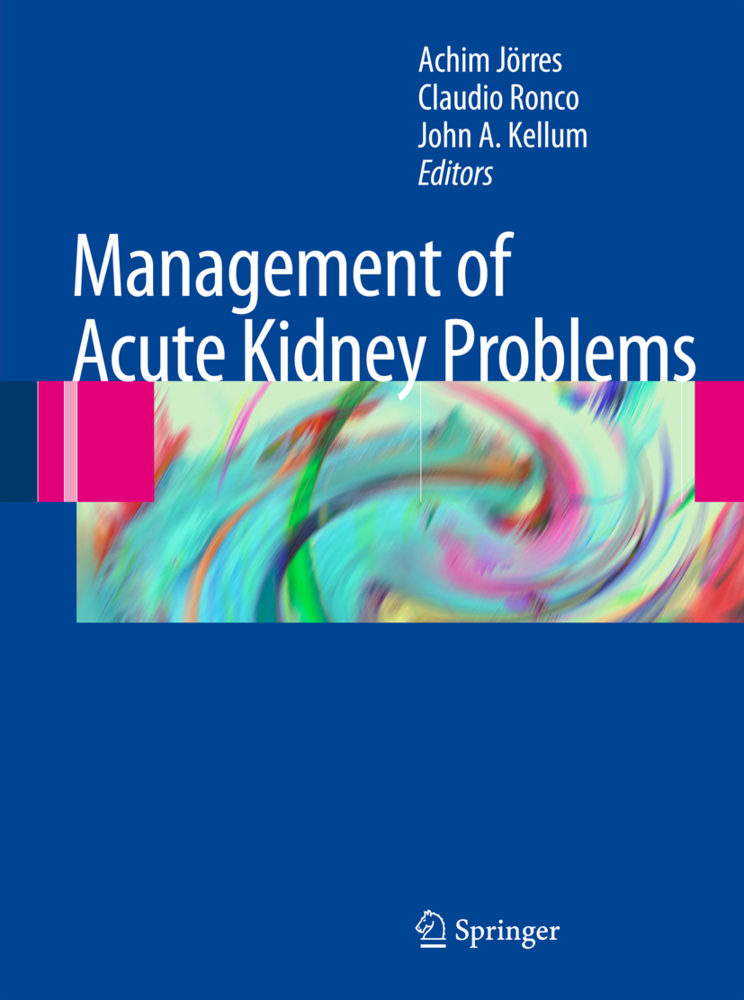Acute Care
Based on the Proceedings of the Sixth International Symposium on Critical Care Medicine
Acute Care
Based on the Proceedings of the Sixth International Symposium on Critical Care Medicine
This volume contains the results of the 7th International Symposium on Acute Care, held in Rio de Janeiro from 21st to 24th November 1977. I would like to thank all the participants for their wonderful cooperation which made this Symposium a real success. I am especially grateful to the excellent speakers from all special ist fields and from all nations: I assure you, we all learned a great deal! I would also like to thank the members of the organizing and scientific committees whose combined efforts ensured the smooth running of the Symposium, a meeting with a high-level discussion of scientific and philosophic problems as its goal. But first and foremost, we should like to express profound gratitude to the man whose idea it was to hold an annual conference in Rio: Dr. Brenildo Tavares, the Director of the Rio Symposia on Acute Care. He is one of the great pioneers of intensive, critical, acute, and emergency care, not only in.south America, but allover the world. The secret of the success of his symposia lies in his interdisciplinary and international approach. The symposia have brought together a great number of people who have since become close friends and continue to meet throughout the world. We all congratulate and thank him and wish him much success in the future.
1.2 Neuropsychiatric Manifestations of Hypokalemia
1.3 Base Excess: A Questionable Parameter in Metabolic Estimation During Low Tecidual Perfusion States - A Clinical and Experimental Study
1.4 Metabolic Acidosis and the Use of Buffers in the Critically III
1.5 Safety of Vitamins when Used for Acute Care in Emergencies
2 Monitoring of the Critically III Patient
2.1 Tissue p02 Monitoring. A New Method in the Care of the Critically III Patient
2.2 Non-Invasive Monitoring of Blood Pressure: Patient Studies
2.3 Indwelling Central Venous Catheter
2.4 Monitoring Tissue in Patients Under Arteriosclerosis Occlusive Surgery
2.5 Improved Clinical Practice in Cholecystectomy - Postoperative Period
2.6 Hormonal Dysregulation in Stress Following Operation and Trauma
2.7 Cerebral Prognosis Determined During Cardiopulmonary Resuscitation
2.8 Remote Medical Diagnosis System
2.9 Computer-Assisted Analysis of Intracranial Pressure for Clinical Applications
2.10 Stabilization of the Spine in Vertebral Tumors and Trauma by Means of Spondylodesis with Harrington Rods and Bone Cement
3 Organization of Intensive Care
3.1 The Border Between Life and Death in Critical Care Medicine
3.2 Regular and Special Engineering Types of Intensive Care Units
3.3 Analysis of the Flow of Patients and the Therapeutic Efficiency of an Emergency Department
3.4 Problem-Oriented Medical Record in Intensive Care
3.5 Portable Life Support Stretcher
3.6 Non-Urgent Usage of Emergency Departments: Now Concepts and Statistical Methods
3.7 Mobile Intensive Care Units
3.8 The Organisation of Emergency Care.Emphasis on Mobile Emergency Care
4 Hematology and Coagulation
4.1 Prophylaxis of the Thrombo-Embolic Disease with Subcutaneous Low Doses of Heparin and Intrapulmonary Application of Heparin with Aerosol Inhalation
4.2 The Influence of Colloidal Plasma Substitutes on Spontaneous and Induced Platelet Aggregation
4.3 The Incidence of Pulmonary Insufficiency Following Major Trauma: Its Relation to Blood Transfusion, Thrombocytopenia, and Proteolytic Enzyme Inhibition
4.4 New Considerations in the Treatment of the Hemolytic-Uremic Syndrome
4.5 Prophylactic Antiplatelet Therapy in Children with Cyanotic Heart Disease
4.6 Disseminated Intravascular Coagulation in Newborn Streptococcal Sepsis. Report on 13 Cases
4.7 Effect of Ethanol Intoxication on Hemostasis in Rats After Liver-Resection
5 Respiration
5.1 Gas Exchange and Hemodynamik Effects of Continuous Positive Pressure Ventilation (CPPV) in Patients with Bacterial Bronchopneumonia
5.2 Pathophysiology in Pulmonary Embolism
5.3 Avoidable Complication of the Mobin Uddin Umbrella for Pulmonary Embolism
5.4 Viral Bronchopneumonia
5.5 Continuous Positive Pressure Ventilation (CPPV) in the Treatment of Adult Respiratory Distress Syndrome
5.6 Serial Inspiratory and Exspiratory Spirometry in Status Asthematicus
5.7 Oxygen Diffusion Velocity - A New Parameter of Early Diagnosis of Pulmonary Oedema
5.8 A New, Airway Pressure Regulated, Atraumatic Endotracheal Cuff: Experimental and Clinical Evaluation
5.9 Inhalation Therapy with Bronchosecretolytic Drugs
5.10 Computers in Lung Function Tests
6 Gastroenterology
6.1 Acute Gastroduodenal Lesions During Severe Infections
6.2 Diagnostic Peritoneal Lavage in Acute Abdominal Disease
6.3 Management and Comparative Results of Massive GastroDuodenal Hemorrhage. Are Highly Selective Examinations Necessary?
6.4 Non Lithiasic Acute Cholecystitis After Shock
7 Cardiology
7.1 Isotopic Diagnosis of Critical Asymptomatic Coronary Artery Disease
7.2 Quantification of Pericardial Effusion by Echocardiography
7.3 Nitroglycerin Effects Upon Haemodynamics, Inotropism, Coronary Blood Flow and Myocardial Oxygen Consumption During Depressed Cardiac Performance
7.4 Pre- and Postoperative Care of the Open Heart/Vascular Surgery Patient
7.5 Predictive Value of Core - Toe Temperature and Mixed Venous Oxygen Saturation After Cardiac Surgery
7.6 Emergency Surgery for the Management of Acute Coronary Insufficiency
7.7 Computer Monitoring of Cardiac Performance from Patients Recovering from Cardiac Surgery
7.8 Metabolic Alterations in Cardiac Surgery with Total Cardiopulmonary Bypass
8 Shock
8.1 Clinical Aspects and Treatment of Toxic-Infectious Shock
8.2 Problems of Streptokinase Therapy in Critically III Children
8.3 Hypertonic Balanced Sodium Solution in Burn Shock
9 Infection
9.1 Management of Septicemia in Intensive Care Units
9.2 Control of Infection in Wounds and Burns by Silver-Zinc and Cerous Sulfadiazine
9.3 Prophylaxis and Therapy of Infection with Open Head Injuries, Rhinoliquorrhea and Otoliquorrhea
9.4 Nosocomial Infections in Intensive Care Units Attributed to Acinetobac Strains
10 Side Effects of Drugs
10.1 Acute Drug-Induced Diseases in Patients in a Medical Clinic.
1 Metabolism in Critical Care Medicine
1.1 Comparison of Hyper-Iso- and Hypotonic Electrolyte Solutions in Therapy of Severe Burns, Major Operations and Trauma1.2 Neuropsychiatric Manifestations of Hypokalemia
1.3 Base Excess: A Questionable Parameter in Metabolic Estimation During Low Tecidual Perfusion States - A Clinical and Experimental Study
1.4 Metabolic Acidosis and the Use of Buffers in the Critically III
1.5 Safety of Vitamins when Used for Acute Care in Emergencies
2 Monitoring of the Critically III Patient
2.1 Tissue p02 Monitoring. A New Method in the Care of the Critically III Patient
2.2 Non-Invasive Monitoring of Blood Pressure: Patient Studies
2.3 Indwelling Central Venous Catheter
2.4 Monitoring Tissue in Patients Under Arteriosclerosis Occlusive Surgery
2.5 Improved Clinical Practice in Cholecystectomy - Postoperative Period
2.6 Hormonal Dysregulation in Stress Following Operation and Trauma
2.7 Cerebral Prognosis Determined During Cardiopulmonary Resuscitation
2.8 Remote Medical Diagnosis System
2.9 Computer-Assisted Analysis of Intracranial Pressure for Clinical Applications
2.10 Stabilization of the Spine in Vertebral Tumors and Trauma by Means of Spondylodesis with Harrington Rods and Bone Cement
3 Organization of Intensive Care
3.1 The Border Between Life and Death in Critical Care Medicine
3.2 Regular and Special Engineering Types of Intensive Care Units
3.3 Analysis of the Flow of Patients and the Therapeutic Efficiency of an Emergency Department
3.4 Problem-Oriented Medical Record in Intensive Care
3.5 Portable Life Support Stretcher
3.6 Non-Urgent Usage of Emergency Departments: Now Concepts and Statistical Methods
3.7 Mobile Intensive Care Units
3.8 The Organisation of Emergency Care.Emphasis on Mobile Emergency Care
4 Hematology and Coagulation
4.1 Prophylaxis of the Thrombo-Embolic Disease with Subcutaneous Low Doses of Heparin and Intrapulmonary Application of Heparin with Aerosol Inhalation
4.2 The Influence of Colloidal Plasma Substitutes on Spontaneous and Induced Platelet Aggregation
4.3 The Incidence of Pulmonary Insufficiency Following Major Trauma: Its Relation to Blood Transfusion, Thrombocytopenia, and Proteolytic Enzyme Inhibition
4.4 New Considerations in the Treatment of the Hemolytic-Uremic Syndrome
4.5 Prophylactic Antiplatelet Therapy in Children with Cyanotic Heart Disease
4.6 Disseminated Intravascular Coagulation in Newborn Streptococcal Sepsis. Report on 13 Cases
4.7 Effect of Ethanol Intoxication on Hemostasis in Rats After Liver-Resection
5 Respiration
5.1 Gas Exchange and Hemodynamik Effects of Continuous Positive Pressure Ventilation (CPPV) in Patients with Bacterial Bronchopneumonia
5.2 Pathophysiology in Pulmonary Embolism
5.3 Avoidable Complication of the Mobin Uddin Umbrella for Pulmonary Embolism
5.4 Viral Bronchopneumonia
5.5 Continuous Positive Pressure Ventilation (CPPV) in the Treatment of Adult Respiratory Distress Syndrome
5.6 Serial Inspiratory and Exspiratory Spirometry in Status Asthematicus
5.7 Oxygen Diffusion Velocity - A New Parameter of Early Diagnosis of Pulmonary Oedema
5.8 A New, Airway Pressure Regulated, Atraumatic Endotracheal Cuff: Experimental and Clinical Evaluation
5.9 Inhalation Therapy with Bronchosecretolytic Drugs
5.10 Computers in Lung Function Tests
6 Gastroenterology
6.1 Acute Gastroduodenal Lesions During Severe Infections
6.2 Diagnostic Peritoneal Lavage in Acute Abdominal Disease
6.3 Management and Comparative Results of Massive GastroDuodenal Hemorrhage. Are Highly Selective Examinations Necessary?
6.4 Non Lithiasic Acute Cholecystitis After Shock
7 Cardiology
7.1 Isotopic Diagnosis of Critical Asymptomatic Coronary Artery Disease
7.2 Quantification of Pericardial Effusion by Echocardiography
7.3 Nitroglycerin Effects Upon Haemodynamics, Inotropism, Coronary Blood Flow and Myocardial Oxygen Consumption During Depressed Cardiac Performance
7.4 Pre- and Postoperative Care of the Open Heart/Vascular Surgery Patient
7.5 Predictive Value of Core - Toe Temperature and Mixed Venous Oxygen Saturation After Cardiac Surgery
7.6 Emergency Surgery for the Management of Acute Coronary Insufficiency
7.7 Computer Monitoring of Cardiac Performance from Patients Recovering from Cardiac Surgery
7.8 Metabolic Alterations in Cardiac Surgery with Total Cardiopulmonary Bypass
8 Shock
8.1 Clinical Aspects and Treatment of Toxic-Infectious Shock
8.2 Problems of Streptokinase Therapy in Critically III Children
8.3 Hypertonic Balanced Sodium Solution in Burn Shock
9 Infection
9.1 Management of Septicemia in Intensive Care Units
9.2 Control of Infection in Wounds and Burns by Silver-Zinc and Cerous Sulfadiazine
9.3 Prophylaxis and Therapy of Infection with Open Head Injuries, Rhinoliquorrhea and Otoliquorrhea
9.4 Nosocomial Infections in Intensive Care Units Attributed to Acinetobac Strains
10 Side Effects of Drugs
10.1 Acute Drug-Induced Diseases in Patients in a Medical Clinic.
| ISBN | 978-3-540-09210-0 |
|---|---|
| Artikelnummer | 9783540092100 |
| Medientyp | Buch |
| Copyrightjahr | 1979 |
| Verlag | Springer, Berlin |
| Umfang | XVI, 348 Seiten |
| Abbildungen | XVI, 348 p. 38 illus. |
| Sprache | Englisch |

